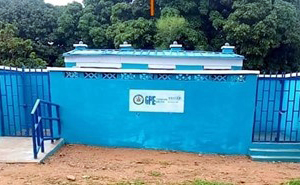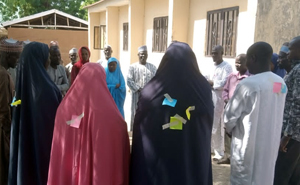Ezekiel teaches at Nassarawo Primary School in Adamawa State, located in North-east Nigeria where only 1 in 3 schools have teachers with the minimum level teaching qualification. Of the many challenges facing the region’s education sector, low teaching quality strains access to education and learning.
Increasing the number of certified teachers and improving the quality of teaching were critical components of the recently concluded GPE accelerated funding grant for Nigeria. This US$20 million grant for 2020-2023, with UNICEF as the grant agent, has supported Nigeria to address poor education access, low school participation and completion rates, the high proportion of out-of-school children as well as poor learning outcomes in the Borno, Adamawa and Yobe (BAY) states.
Civil armed conflict has impacted North-east Nigeria since 2009. States within the region, primarily the BAY states, have experienced attacks by non-state armed groups and inter-communal clashes that have weakened the delivery of basic social services. The education sector has not been spared: between 2009 and 2020, 400 schools were damaged, more than 1 million children were forced out of school and 2,295 teachers were killed.
The government of Nigeria has prioritized investing in the teaching profession as teacher effectiveness has been found to be an important predictor of student learning. A tailored training and qualification program not only ensures teachers have the minimum requirements, but also equips them to deliver education that meets the needs of conflict-affected children who might need remedial education and/or psycho-social support.
The GPE grant, along with other interventions supported by the Education in Emergencies Working Group for North-east Nigeria, are supporting the government to meet its objectives for teacher quality and effectiveness.







